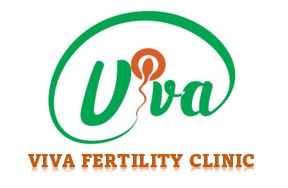It begins with emotions and fears
When faced with the possibility of using donor eggs, many patients experience a range of emotions and fears. At Viva Fertility Clinic, we understand that this decision can be overwhelming, and it’s perfectly natural to have concerns. Below, we explore some of the most common fears surrounding egg donation and provide reassurance to help you make an informed and confident decision.
1. Will I Feel Connected to the Child?
One of the most common fears is whether a parent will bond with a child conceived through donor eggs. Many women worry that without a genetic link, they may struggle to feel the same emotional connection with their child. However, studies and countless patient stories show that the bond between parent and child goes far beyond genetics. The experience of carrying the pregnancy, nurturing the child, and raising them creates an unbreakable bond that is rooted in love, care, and shared experiences.
2. What Will Others Think?
The fear of judgment from family, friends, or society can weigh heavily on patients considering donor eggs. Concerns about whether people will view the child differently or how to explain the situation can be stressful. It’s important to remember that how you choose to build your family is deeply personal. You have full control over how much or how little you share with others. Additionally, societal views on assisted reproduction are rapidly evolving, and many people are increasingly supportive of the various ways families are created.
3. Will My Partner Feel Differently?
Another common concern is whether using donor eggs will affect the relationship with one’s partner. Patients often worry that their partner may feel disconnected from the child or that it may impact their relationship. Open communication is key. Many partners fully support the decision and feel just as emotionally invested, particularly when they see the joy it brings to the family. It’s important to have honest discussions and seek counseling if necessary to ensure both partners feel confident and supported throughout the process.
4. How Will I Tell My Child?
Patients often fear how and when to tell their child about their conception using donor eggs. Will it affect the child’s self-identity or emotional well-being? Research suggests that being open with children from an early age about their origins, in an age-appropriate way, leads to healthier outcomes. Many families find that honesty fosters trust and acceptance, and organizations offer resources and support on how to have these conversations.
5. Will the Donor Look Like Me?
A common worry is whether the egg donor will have physical characteristics or traits similar to the intended parent. Fertility clinics, including Viva, take great care in matching donors based on physical characteristics and other important traits. While the child may not be genetically related to the intended mother, choosing a donor who shares similar features can help ease concerns about resemblance.
6. Will My Child Inherit Traits from the Donor?
Patients also express concerns about the traits their child may inherit from the donor. While the egg donor contributes half of the child’s genetics, environmental factors, upbringing, and parental influence play significant roles in shaping a child’s personality, behavior, and values. Parents who have used donor eggs often emphasize that nurturing, guiding, and loving their child plays a far more substantial role than genetics alone.
7. Am I Giving Up Too Soon?
Some patients feel that choosing donor eggs might be seen as giving up on trying to conceive with their own eggs. This emotional conflict can be challenging, especially after years of trying and failed treatments. It’s important to remember that choosing donor eggs is not about giving up but about finding a path to parenthood that works for you. Many women come to see it as a gift—an opportunity to achieve their dream of becoming a parent.
8. Financial Concerns
The cost of using donor eggs can also be a source of anxiety. IVF with donor eggs often involves multiple steps, including egg retrieval, donor screening, and treatment cycles, which can add up. At Viva Fertility Clinic, we offer financial counseling and payment plans to help alleviate these concerns, ensuring you have access to the care you need without unnecessary financial strain.
9. Legal and Ethical Concerns
Some patients worry about the legal implications of using donor eggs. Who has parental rights? What if the donor seeks involvement later on? Rest assured that egg donation is highly regulated, and the donor has no parental rights once the donation process is complete. Additionally, all donors sign legal agreements that clearly outline their role, ensuring that the intended parents have full legal rights to the child.
Moving Forward with Confidence
At Viva Fertility Clinic, we are here to support you through every step of your fertility journey, including addressing any fears or concerns you may have about using donor eggs. Our experienced team is available to provide counseling, answer questions, and offer reassurance, so you can move forward confidently in your decision.
Choosing donor eggs is a deeply personal decision, but it is also one that brings hope, joy, and the opportunity to experience the miracle of parenthood. If you have any questions or need further guidance, don’t hesitate to reach out to our team at Viva Fertility Clinic.

